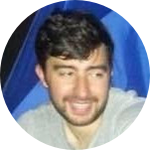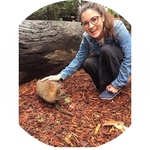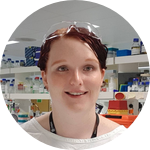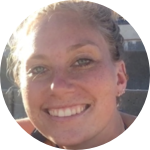About This Project
Our immune T-cells are a type of white blood cell that are crucial to recognise and attack infections and cancerous cells. For this reason, T-cells are important drug targets in vaccines and cancer immunotherapies. A drug currently in pre-clinical development is showing promising results in boosting a key regulator in T-cell functions 500-fold, but how this happens remains a mystery. We hypothesise that the drug increases the active state of the T-cell regulator by inducing a structural change.
Ask the Scientists
Join The DiscussionWhat is the context of this research?
We are particularly interested in how the T-cells – an important part of our adaptive immune system – are spurred into action. T-cells receive and relay signals from their environment using a complex signaling network. Core players in this network includes the T-cell receptor, which can switch the T-cell into active mode when it binds a pathogen. Whether or not the protein can activate the T-cell depends on the 3D form it takes: either be ‘open and active’ or ‘closed and inactive’. Our lab has previously demonstrated that the structure of this phosphorylating protein affects how it clusters on the membrane. The working hypothesis is that the drug enhances T-cell activation by increasing the ‘open and active state’ of the protein, which in turn affects its clustering.
What is the significance of this project?
T-cells are incredibly important in immunity, protecting us against infections and diseases. In our study we aim to work out the mechanism of action of a promising, yet unpublished, peptide-based immunotherapeutic drug that boosts T-cell responses. Once we know the mode of action of this drug, it will help us understand and further refining therapeutic approaches to boosting immune responses.
What are the goals of the project?
The working hypothesis is that the drug of interest enhances T-cell activation by increasing the ‘open and active state’ of the protein, leading to more of the protein clustering around the T-cell receptor. We will first examine clustering of a T-cell activating protein with and without the drug. Subsequently we will investigate the mechanism of the drug, by using mutants of the protein that will keep the protein in a locked structure. We will make use of super resolution microscopy techniques developed in our lab to detect and measure clustering of the protein in response to the drug.
Budget
We will be testing the effect of a promising drug on a protein and its clustering. For that we will need cell culture media and tissue consumables. We will need Neon Transfection System Kit which promises better transfection efficiency. For imaging, we will need lipid bilayers (created with several reagents) and imaging chambers (Ibidi slide with a removable 8 well silicone chamber for cell culture and immunofluorescence staining chambers), and 2 different commercial antibodies to attach the T-cells to the lipid bilayer. Additionally, we will need to pay for access to a high-resolution microscope, housed at the core facility at UNSW Sydney.
Endorsed by
 Project Timeline
Project Timeline
During my internship of 7 months, I first started by familiarising myself with the literature and getting learning techniques, such as microscope handling and sample preparations. At this moment, I am testing clustering of the protein in T-cells in basal conditions. Next, I will test the effect and mechanism of the drug on the protein its clustering. The results of this research will be reported in my final master thesis and a manuscript will be written.
Dec 03, 2018
Project Launched
Mar 14, 2019
Results of the protein its clustering in basal conditions
Mar 25, 2019
Project Launched
Mar 27, 2019
Share video of preliminary results
May 30, 2019
Results of the drug its effect and mechanism on the protein its clustering
Meet the Team
Britt van der Swaan
I am a Biomedical Sciences master student at the University of Amsterdam, currently doing my final internship at the University of New South Wales Sydney, Single Molecule Science. The track of the biomedical sciences master I am following, 'Cell Biology and Advanced Microscopy', allows me to specialise in using advanced microscope techniques in diverse biological questions. The lab of Katharina Gaus and Jesse Goyette, where I will be conducting the research, brings expertise of biologists, physicists and engineers together in order to address T-cell immunity related questions using new single molecule microscopes. Under supervision of Katharina and Jesse, the lab will help me to improve my microscopic skills and focusses on teaching you to work independently and to think critical about research, which prepares me very well for doing a PhD.
Jesse Goyette
Head of the Katharina Gaus - Jesse Goyette lab at Single Molecule Science. Jesse supervises the project.
Project Backers
- 9Backers
- 17%Funded
- $572Total Donations
- $63.56Average Donation




